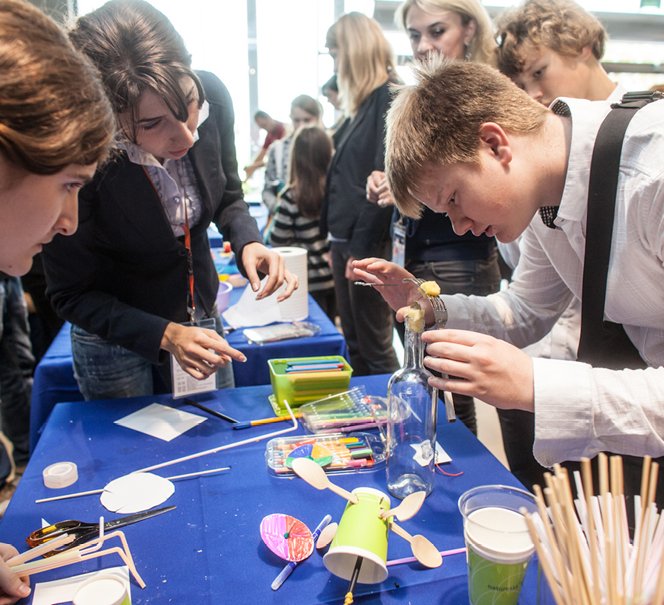How does YEC work?
At YEC, personal commitment is the most important. Club members propose topics of interest themselves, and with the support of the club's guardian – a teacher or a tutor – explore selected issues, using the research method. First of all, they learn to ask questions and pose hypotheses, and in the course of experimenting, they learn that making mistakes is a also valuable lesson in problem solving. The subject of research – depending on the children's age – may be experiments with magnets, observations of the cosmos, or analyses of the purity of water in a nearby river.
Why is YEC worthwhile?
Within the club, YEC guardians, who are usually teachers, can actually live their dreams of teaching. Partnership relations with students, based on trust and mutual inspiration, striving to solve fascinating mysteries of nature together, passion and commitment of all meeting participants – that's a norm at KMO. Although clubs operate outside school hours, they often initiate changes that are also visible at school-wide level. The idea of comprehensive development, which accompanies joint experimentation and materialises in a researcher or discoverer attitude, often permeates lessons, and it turns out that the research method can be successfully used in the implementation of the core curriculum.
Club members, both children and adolescents, gain experiences that are both interesting and valuable, and as a result they better absorb and understand new subjects. Besides, like scientists, they are not afraid of the unknown and have the courage to ask the most daring questions. They become enterprising, self-confident, and ready to get to know and explore the world. In YEC, we do not divide club members into better and worse, no one is judged. Here, every child can develop freely – as long as they are curious and full of questions.














